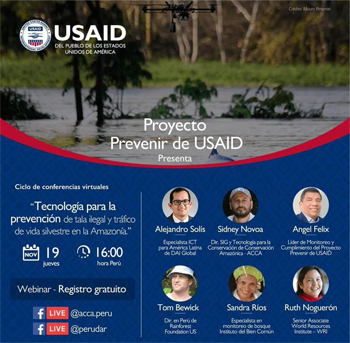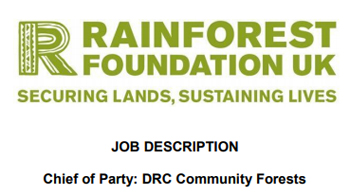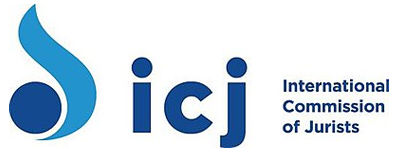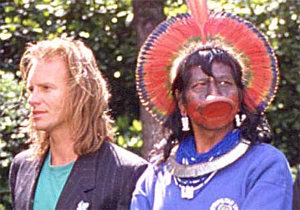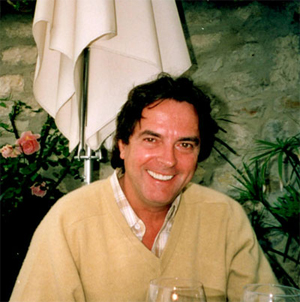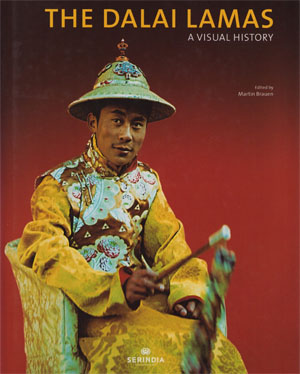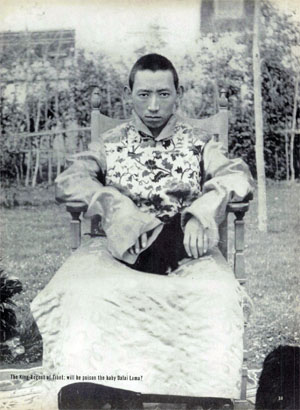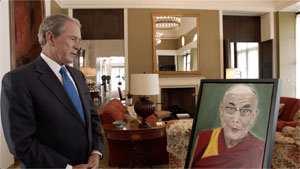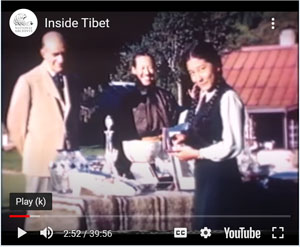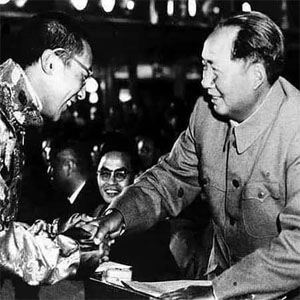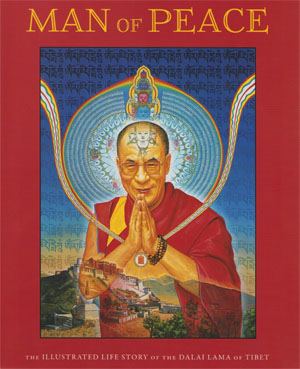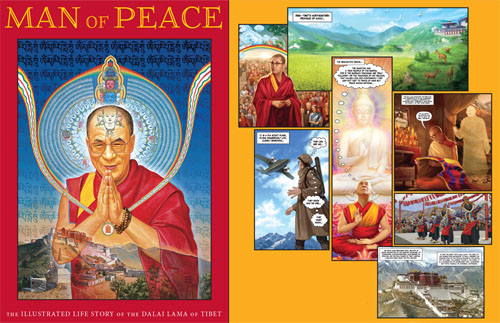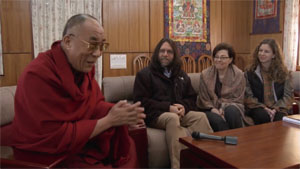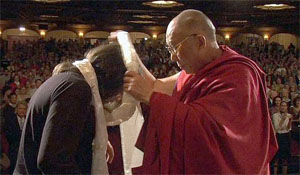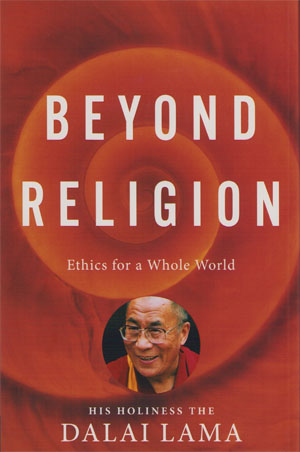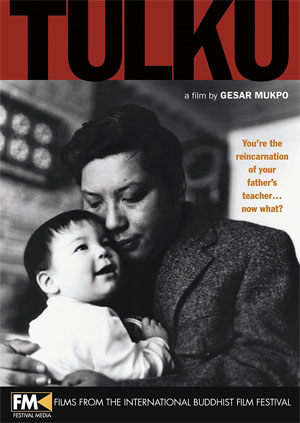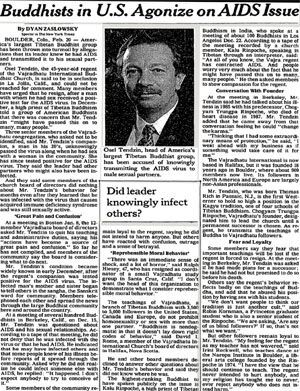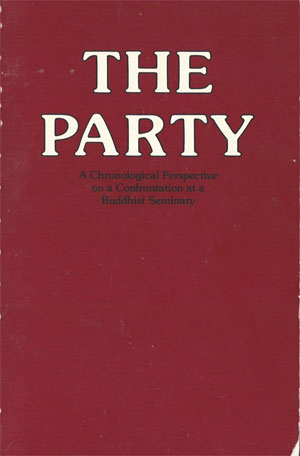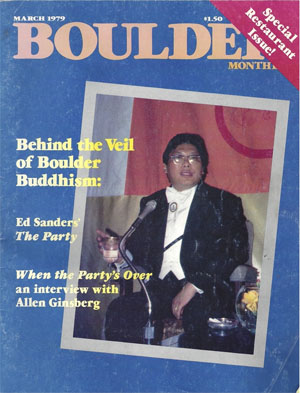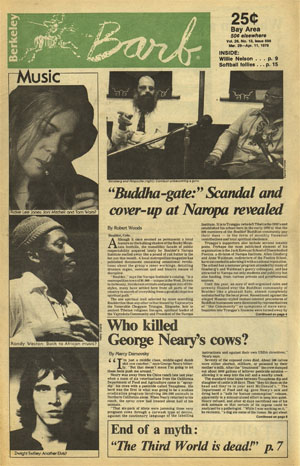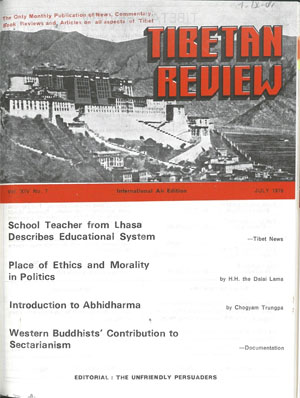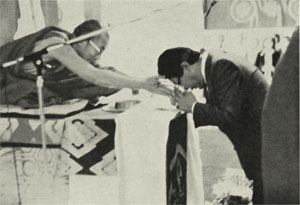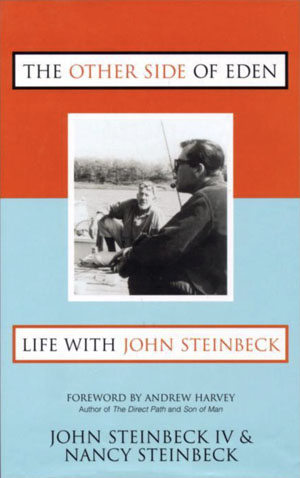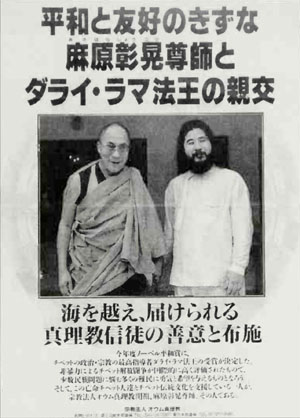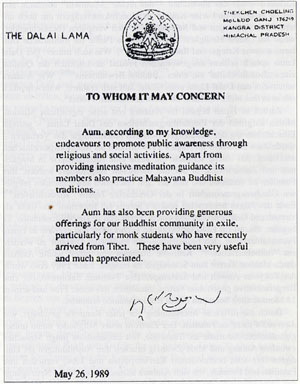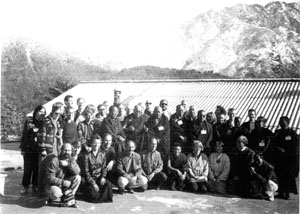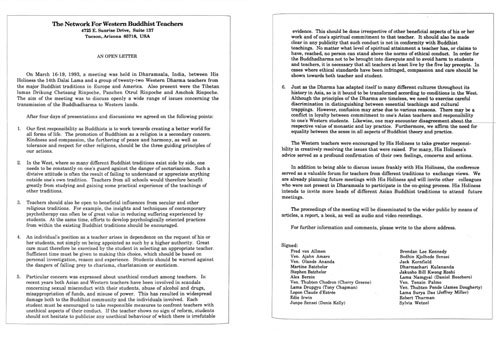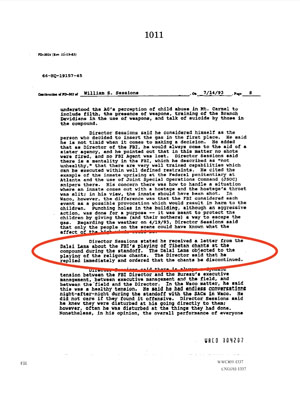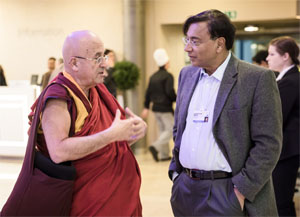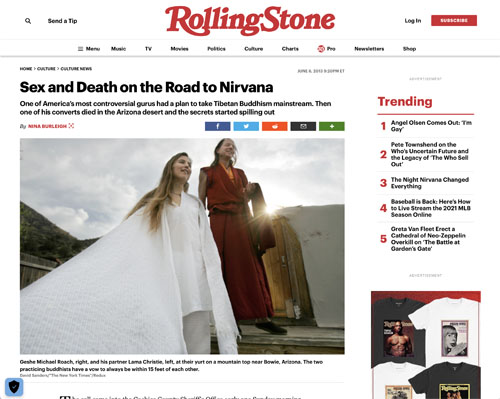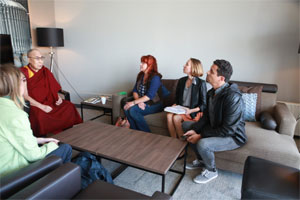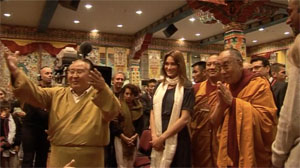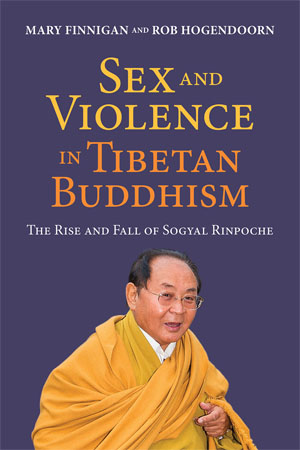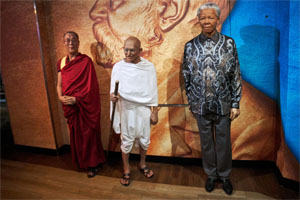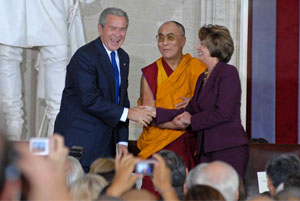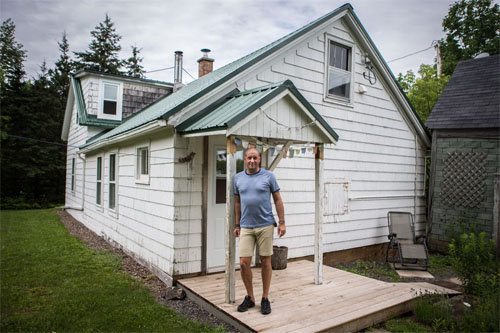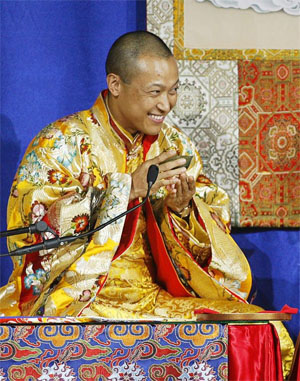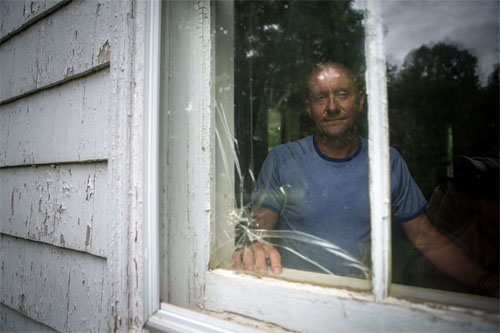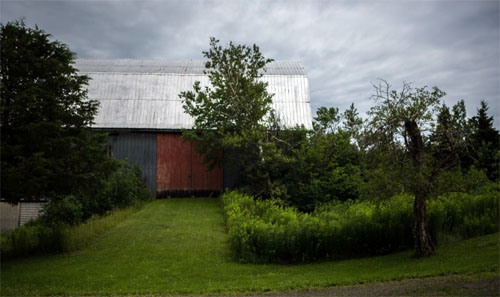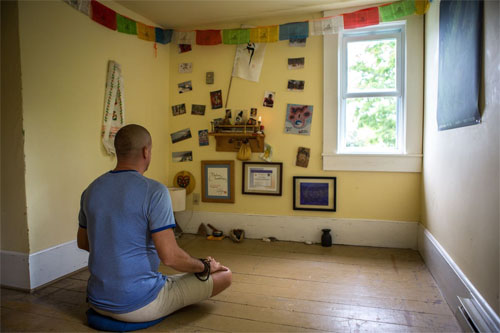by sourcewatch.org
Accessed: 12/14/20
Amnesty International
One of the principal agencies coordinating the activities of Socialist-Jesuit-KGB efforts is Amnesty International (AI), the London-centered "human rights" agency. In the past week alone, AI has intervened in West Germany to demand the easing of prison conditions for the jailed Baader-Meinhof terrorists; has made similar demands on behalf of the M-19 terrorist gang in Colombia; and has sent former U.S. Attorney General and Khomeini backer Ramsey Clark to Northern Ireland on behalf of a jailed IRA member there.
Amnesty International is closely associated with another transnational "support organization," the International Law Association. The ILA is run to an important extent out of Montreal, Canada offices of Major Louis Mortimer Bloomfield. During the 1960s, Bloomfield was exposed in both the French and American press as one of the leading conspirators in over 30 assassination attempts against French President Charles de Gaulle and for the successful 1963 assassination of U.S. President John F. Kennedy. His commercial front organization, Permindex, was a central component of the "International Assassination Bureau" originally created by the British Special Operations Executive during 1938. It is that network of Venetian and London-linked professional assassins that maintains to this day the professional "hit" capability. Unlike the 1963 period of bloody "executive action," or even the 1968 street insurrections, today's "International Assassination Bureau" hit-men have an exhaustive international network of terrorist cells, umbrella protest groups, and liberation movements into which they can be plugged.
-- EIR Executive Intelligence Review, May 5, 1981
Amnesty International pleads innocent
EIR has received a letter, datelined London, May 29, from Richard Reoch, Head of Press and Publications for Amnesty International, which reads in part: "You state (EIR. May 5, 1981) that 'one of the principal agencies coordinating the activities of Socialist-Jesuit-KGB efforts is Amnesty International.' ...
"Amnesty International does not coordinate the activities of the socialists, the Jesuits, or the KGB, [and] does not undertake joint actions with other organizations and has no links with governments or their agencies.
"Allegations of this sort have been made by individuals and agencies at both ends of the political spectrum. Earlier this year the Soviet newspaper Izvestiya accused Amnesty International of being 'completely maintained by Western Intelligence Services.'
"Amnesty International did not send Ramsey Clark to Northern Ireland, as the article incorrectly suggested. Its concern for prison conditions in the Federal Republic of Germany and allegations of torture in Colombia do not imply support for the political objectives of those imprisoned.
"Our concern is for universal implementation of the United Nations' injunction against torture and the Standard Minimum Rules for the Treatment of Prisoners. A fuller picture of the work of Amnesty International would mention its efforts for the defense of human rights in more than 100 countries this year alone .... "
EIR editors reply: We did not mean to imply that Amnesty International is a leading arm of the one-world effort -- merely one of its feet.
-- EIR Executive Intelligence Review, June 16, 1981
Recognizing the urgent need for Al to build and grow in the Third World, and in response to a proposal by the Indian Section, the International Executive Committee appointed Richard Reoch, who had been a member of the secretariat staff, to work as a regional field secretary in South Asia on an experimental basis. He took up his appointment in February 1974 and is based in New Delhi.
-- Amnesty International Annual Report 1973-74
Chögyam’s relocation to Halifax, Nova Scotia, along with key followers over a period of a few years, brought an unusual energy to the small, historic city and largely rural province. There were no doubt many motives for this move, including an awareness that the American government was becoming increasingly wary of Eastern cultic movements such as those associated with Sri Rajneesh or Sun Myung Moon, both in trouble with the law. Chögyam’s wife Diana had equestrian contacts in Nova Scotia, and he had made a reconnaissance of the province as early as 1977 and taken a retreat in Mill Village in 1979. As one of Chögyam’s early supporters who came with him in the first cohort has remarked, ‘Chögyam liked the basic goodness of Nova Scotia, where there was a feeling of humanity without a whole lot of speed’. This is the more likely explanation for the decision to remove the Vajradhatu headquarters and the residence of the spiritual leader from the United States to cool, calm, collected Nova Scotia. To escape any cultic suggestion, Chögyam called his organization the Karma Dzong Buddhist Church of Halifax. The new community was largely comprised of young professionals of Caucasian extraction, who brought with them entrepreneurial skills and a commitment to stay the course in what was otherwise seen to be an economic backwater in an underprivileged part of Canada. They made a major contribution to Halifax in every way, perhaps above all introducing a Westernized form of an exotic branch of Buddhism to a community which had seventy Christian churches and two synagogues, but no established mosques, Hindu temples or Buddhist centres. Further, these new citizens contributed substantially to Nova Scotia’s economic and cultural life. Diverse initiatives ranging from high-end provisioners and restauranteurs to bookshops and environmentally sensitive property development have had a positive impact much beyond a community small in number.
The phenomenon of Chögyam’s Tantric Tibetan Buddhism in Nova Scotia is made complex by the polarity of religious activity it appeared to endorse, suggesting as it does that the dark aspects of the human psyche are important to enlist in order to see the whole of the human condition and overcome its limitations. On the one hand, there was the ambivalent ‘crazy wisdom’ of the guru himself, a hard drinking, chain smoking, often intoxicated and promiscuous spiritual leader whose every action, no matter how outrageous, was seen by his devotees to be somehow acceptable – a Tantric lesson deliberately engaging shock designed to help his followers to see beyond the mundane. In her careful research of this period, which involved many interviews with Vajradhatu practitioners, Lynn Eldershaw cites one such incident:Many other people were getting really pissed. After he was fully two hours late he comes in drunk and staggers on to the stage and then he sits down and gives this ten minute talk. Then he stops and says, ‘Okay, I’ll take questions now.’ All the questions were about why he made them wait so long. He went along with that for ten minutes and then said, ‘Well, it’s good for you to wait for me.’ Then he walks off . . . People waited two hours for this ten minute talk and an abusive ten minute question period by this drunken Tibetan.
-- (Eldershaw 1994: 56)
Yet clearly this did not deter the faithful, who saw in this kind of performance a valuable teaching of some kind, no matter how bizarre. Another long-time student of Chögyam’s reflected on her relationship with the guru in more empathetic terms:My main connection with Chögyam Trungpa Rinpoche is the mind connection of his enormous power and generosity, and [his] ability to open his mind so wide and articulate, so elegantly, that anybody who wanted to tune into his mind could do so. So, I feasted on him. I quenched my thirst and satisfied my hunger and feasted on his wisdom, and his brilliance, and his beauty, and his craziness, and his flare and his outrageousness. His outrageousness most of all.
-- (Eldershaw 1994: 67)
Chögyam’s lifestyle was certainly curious for a spiritual leader from any faith, and likely contributed to his demise in 1987. The regent Ösel Tendzin in turn died of AIDS just three years later. Although this caused not insignificant turmoil within the Buddhist community, remarkably it passed without much commentary by the fairly straightlaced non-Buddhist Halifax public. For example, the Anglican diocesan bishop of the time, knowing that I had met Chögyam twice, asked me if I would kindly explain just what kind of Buddhism was being expressed at Karma Dzong. But there was no hint of righteous opprobrium from this or any other Christian denomination. The Buddhist community seemed to take note of its possible predicament and image, careful new leadership came forward under its Board of Directors, and the organization quickly regained its focus with no suggestion that its headquarters (now known as Shambala International) should leave Halifax for another, more cosmopolitan or central location. His Holiness Dilgokhyentse Rinpoche, a Nyingma prelate and former teacher of both Chögyam and his son, the Sakyong Mipham Rinpoche, advised the latter to then take on the spiritual direction of Shambala and move to Halifax from Britain accordingly. Although a President (Richard Reoch) and considerable administrative staff are responsible for this complex organization (with 160 centres worldwide), its fundamental spiritual focus is nonetheless emphasized in Mipham’s leadership role. Unlike his father Chögyam, Mipham has returned to wearing robes, though, like his father, he is not known to be celibate.
-- Buddhism in Canada, edited by Bruce Matthews
This article is a stub. You can help by expanding it.
Biographical Information
"Richard Reoch’s international human rights work includes senior management of the international public information program of Amnesty International, international consultations involving organizations working on peace and justice issues in Ireland (north and south), and acting as an advisor to the Indo-British Project on the Prevention of Torture. In the 1980s, he was asked by Sting to help organize the Rainforest Foundation, and is one of its longest-serving trustees.
The trustee acts as the legal owner of trust assets, and is responsible for handling any of the assets held in trust, tax filings for the trust, and distributing the assets according to the terms of the trust. Both roles involve duties that are legally required.
-- Executor & Trustee Guidelines, by fidelity.com
Rainforest Foundation US
@RainforestUS
Join us today!!
RFUS's Peru Director
@tomrfus
will be discussing how #indigenous peoples detect illegal #deforestation and protect the #rainforest using technology.
This virtual conference is organized by USAID Peru.
Pencil Register here: https://bit.ly/3pInJpo
#ProtectAmazonia
10:19 AM · Nov 19, 2020
The Project: USAID Funded Improving Livelihoods and Land Use in the Democratic Republic of Congo through Community Forests
The adoption of the Community Forests Decree in 2014 and its main bylaw in 2016 in the Democratic Republic of Congo (DRC) is arguably the most significant legal reform related to tropical forests and forest peoples’ rights in recent years. This framework could impact as many as 40 million forest-dependent people and with tens of millions of hectares potentially available to develop pro-poor, community models of forest management.
Since its creation, RFUK has been continuously advocating and supporting the development of community-based forest management in the Congo Basin – something that is now widely recognised as being key to achieving delivering strong conservation and development outcomes. Under a DFID (now FCDO) funded project (2016-2019), RFUK headed a consortium of Congolese and international NGOs that played a central role in laying the foundations for community forestry in DRC. The project facilitated the development and adoption of the National Strategy for Community Forestry; consolidated the Multi-stakeholder Roundtable for Community Forestry as a deliberative policy making body; accompanied nine communities to apply for their community forest concessions; trained and built capacities among civil society and government officials at all levels; and produced an ground-breaking body of resources, studies and tools to inform best practice in DRC and beyond.
USAID and other donors are now supporting RFUK and our consortium partners to build on these efforts to trigger a new phase of development of community forestry in DRC. The project, which will run from September 2020 to September 2025, has the central objective to consolidate community forests as a viable forest use model that enhances livelihoods while protecting forests. To this end, the project will pursue four main strands of work:
• Promoting land use planning, sustainable management and income generating activities in pilot community forests in Equateur, North Kivu and Maniema provinces;
• Tackling deforestation and protecting biodiversity in target sites;
• Advocating for the continued improvement of the legal framework and promoting transparency and good practice;
• Building capacities in government and local civil society.
Activities will be implemented in the field by a consortium of Congolese NGOs based in Kinshasa, Goma, Mbandaka and Kindu...
Responsibilities
The DRC Chief of Party (COP) will be based in Kinshasa and will have the overall responsibility of coordinating project activities on the ground, liaising with partners on a daily basis and leading on policy aspects of the project whilst being the main point of contact for the donor, the USAID CARPE office in Kinshasa.
The post-holder will work closely with the London based project team, led by the RFUK CF Project Coordinator and the Project Finance and Admin Officer. S/he will also have a close working relationship with RFUK’s Programmes Finance, Admin and MEL Coordinator, Tech team, Policy team and additional staff and consultants in the Programmes Team...
1. Project management
• Oversee the implementation of the project on the ground in line with strategy, agreed budgets, logframe, work plans and procedures in coordination with the DRC CF Project Coordinator.
• Manage the relationship with USAID (CARPE team, based in Kinshasa) under the donor’s principle of “substantial involvement”, maintaining regular communications with the donor and keeping them regularly informed and involved in the execution of the project. ...
PERSON SPECIFICATION
Detail / Essential / Desirable
Knowledge and Experience / Master’s Degree in law, anthropology or international development or a related
subject or equivalent professional experience. / Experience managing USAID projects.
-- Job Description: Chief of Party: DRC Community Forests, by Rainforest Foundation UK: Securing Lands, Sustaining Lives
Currently, he chairs the International Working Group on Sri Lanka, a consortium of senior diplomats and officials of major agencies supporting the peace negotiations in Sri Lanka.
The support to the Office of High Commissioner for Human Rights continued within the Common Humanitarian Action Plan, CHAP, and enabled the Office of the High Commissioner for Human Rights (OHCHR) to expand from one advisor to an advisory team linked to the UN’s country office. This constituted an important step towards an increased presence and a strengthened human rights perspective within the UN as well as several ministries. OHCHR was also instrumental in facilitating number of high profile visit during the year including the High Commissioner for Human Rights and a number of special rapporteurs and special representatives to the UN Secretary General. The International Commission of Jurists (ICJ) and International Working Group on Sri Lanka (IWG) were supported for their work of strengthen international lobbying and advocacy in relation to the deteriorating human rights and rule of law situation. This included facilitation and networking of local, regional and international human rights organisations for strengthened local human rights monitoring as well as joint action mainly in relation to the UN’s Human Rights Council. However, IWG couldn’t implement its planned activities focusing on building negotiation capacity of parties due to suspended peace negotiation.
-- Sri Lanka: Sida Country Report 2007, by Embassy of Sweden, Colombo, May 2008
On May 6, the International Working Group on Sri Lanka, a coalition of aid agencies and human rights organizations, called on the international community to avert an impending humanitarian crisis in Sri Lanka. In mid-May, government and NGO delegates from thirty countries attending an Asia-Pacific conference on child soldiers appealed for a global ban on child soldiers. The delegates' "Kathmandu Declaration" noted that a growing number of children were being used in armed conflicts, particularly where insurgent groups were active, and said that Sri Lanka was among the worst offenders in the region.
-- Sri Lanka, by Human Rights Watch World Report 2001
Seeking Transitional Justice, Reform, and Reconciliation in Post-War Sri Lanka: The International Working Group on Sri Lanka Ltd.
$40,000
To support post-war transitional justice, reform, and reconciliation. The organization will coordinate a series of capacity building training workshops, roundtable discussion to formulate advocacy strategies, and consultation meetings with elected representatives, policy advisors, and bureaucrats in conjunction with Sri Lankan civil society activists to mobilize domestic and international support for meaningful transitional justice efforts.
-- National Endowment for Democracy Grants: Sri Lanka 2018
Seeking Transitional Justice, Reform, and Reconciliation in Post-War Sri Lanka: The International Working Group on Sri Lanka Ltd.
$40,000
To support post-war transitional justice, reform, and reconciliation. The organization will coordinate a series of capacity building, strategy, and advocacy related activities in conjunction with Sri Lankan civil society activists to mobilize domestic and international support for meaningful transitional justice efforts. The organization will convene at least two coordinating sessions for civil society organizations around important events, including Human Rights Council sessions and elections.
-- National Endowment for Democracy Grants: Sri Lanka 2019
Mr. Reoch is the President of the Shambhala Mandala -- a global network of meditation centers." [1]
"For many years he was the global media chief of Amnesty International, speaking for human rights to the media worldwide. His particular field has been campaigning against torture: he is the author of the official field manual on torture prevention used by the 55-nation Organization for Security and Cooperation in Europe...
The Organization for Security and Co-operation in Europe (OSCE) is the world's largest security-oriented intergovernmental organization. Its mandate includes issues such as arms control, promotion of human rights, freedom of the press, and fair elections. It employs around 3,460 people, mostly in its field operations but also in its secretariat in Vienna, Austria, and its institutions. It has its origins in the 1975 Conference on Security and Co-operation in Europe (CSCE) held in Helsinki, Finland.
The OSCE is concerned with early warning, conflict prevention, crisis management, and post-conflict rehabilitation. Its 57 participating countries are located in Europe, northern and central Asia, and North America. The participating states cover much of the land area of the Northern Hemisphere. It was created during the Cold War era as an East–West forum.
-- Organization for Security and Co-operation in Europe, by Wikipedia
In 2002, Sakyong Mipham Rinpoche, head of the Shambhala Buddhist lineage, appointed him President of Shambhala, a global community dedicated to the practice of creating enlightened society." [2]
• Director, Center for Living Peace
• Advisory Board, Chögyam Trungpa Legacy Project
References
1. Board, Center for Living Peace, accessed November 28, 2011.
2. Who we are, Chögyam Trungpa Legacy Project, accessed November 28, 2011.
**************************
Richard Reoch
by praguecollege.cz
Accessed: 12/14/20
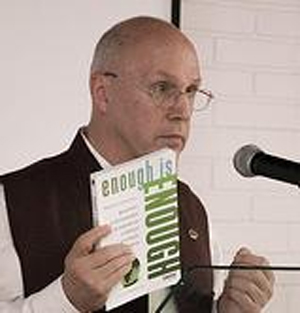
Richard Reoch has spent most of his working life in the service of international public affairs organizations. He has been particularly engaged in human rights, conflict resolution and environmental protection.
Born in Toronto, Canada, in 1948 he studied literature and aesthetics at Trinity College, University of Toronto. He then travelled to London, England, to begin working at the headquarters of the human rights organization, Amnesty International. For much of his 23 years there, he was the global media chief, speaking to the press and appearing on TV and radio worldwide.
In the 1990s he was asked by the musician Sting to help establish the Rainforest Foundation. He remains one of its longest-serving trustees.
Miles Axe Copeland III (born May 2, 1944) is an American music and entertainment executive and former manager of The Police. Copeland later managed Sting's musical and acting career. In 1979, Copeland founded the I.R.S. Records label, producing R.E.M., The Bangles, Berlin, The Cramps, Dead Kennedys, The Alarm, The Go-Go's, and others.
Background
Copeland was born in London, England, to Miles Axe Copeland, Jr., a CIA officer from Birmingham, Alabama, United States, and Lorraine Adie, a Scot who worked in British intelligence. The family lived throughout the Middle East, in particular Syria, Egypt, and Lebanon. At an early age, Copeland and his brothers were fluent in Arabic.
Copeland attended Birmingham-Southern College in Birmingham, Alabama, in 1962. He graduated with a degree in history and political science. From 1966 to 1969, Copeland attended the American University of Beirut, earning a degree in economics. This was also where he promoted his first concert. After college, he moved to London, met two progressive rock musicians at a club, and helped them form Wishbone Ash.
BTM and Illegal Records
In 1974, Copeland founded the management agency and record label BTM (British Talent Management) and signed a number of progressive rock acts such as Squeeze, Renaissance and Curved Air. In the summer of 1975, he organized a multi-band tour of European music festivals, named Star-Trucking, which featured several BTM bands as well as Soft Machine, the Mahavishnu Orchestra and Lou Reed. However, Reed's failure to appear at any of the shows and other logistical issues resulted in significant losses for Star-Trucking, and ultimately to the failure of BTM. In 1976, BTM closed down.
BTM's end coincided with the beginning of the UK's Punk/New Wave movement and led Copeland to co-found Illegal Records, Deptford Fun City Records, New Bristol Records, and to sign the Cortinas, Chelsea, and the Models to Step Forward Records in 1977.
The Police
In 1978, Copeland became manager of his brother Stewart's band, The Police. Copeland shepherded the group to become one of the biggest bands of the 1980s, peaking with a concert for 70,000 people at Shea Stadium and the number one single for 1983, "Every Breath You Take".
Surveillance was never so sexy!
He continued to manage Sting through seven solo albums. Copeland was not, however, included in the reunion era of The Police, leading to a 2007 interview in which Copeland lamented that money was the issue.
I.R.S. Records
The success of The Police and the novel methods used to popularize them enabled Copeland to found I.R.S. Records through a deal with A&M Records. Copeland's I.R.S. label had hits with the Buzzcocks, R.E.M., The Cramps, Fine Young Cannibals, The Bangles and many others, including a number one album with his label's group The Go-Go's.
Copeland International Arts
Copeland owns and operates CIA (Copeland International Arts), which includes the Bellydance Superstars, Celtic Crossroads, Otros Aires, Zohar, and Beats Antique. Much of the CIA catalog initially included Middle Eastern, world music, Irish, tango, flamenco, and Polynesian styles. The label later signed mainstream artists.
Personal life
Another of Copeland's brothers, Ian Copeland, was a booking agent who described much of the New Wave adventures of Miles, Stewart and himself in his book Wild Thing.[9]
-- Miles Copeland III, by Wikipedia
Stewart Copeland on New Podcast ‘My Dad the Spy,’ How He’s Spending His Lockdown: In his Audible series, the former Police drummer sets out to uncover the truth about his CIA-agent father
by Angie Martoccio
Rolling Stone
October 20, 2020
He is also the chairperson of the International Working Group on Sri Lanka, a consortium of senior diplomats and officials of major agencies supporting the search for a durable peace in Sri Lanka.
His work has taken him to more than 40 countries. He has given public presentations and addresses to community organizations and professional bodies that include: the Foreign Press Association (London), the Press Club of India, the Foreign Correspondents' Clubs of Hong Kong and Japan, the Bar Associations of Karachi, Hyderabad and Kathmandu, the United Nations Association of Great Britain, the United Kingdom Assistant Prison Governors' Association, and the Senior Command Course for Senior Police Officers in the United Kingdom.
He has led international consultations on peace and justice issues in Ireland (north and south), and been an adviser to the Indo-British Project on the Prevention of Torture on behalf of the Medical Foundation for the Care of Victims of Torture.
He is the editor of Human Rights: the new consensus, the report from the United Nations World Conference on Human Rights, and of the official field manual, Preventing Torture, of the 55-nation Organization for Security and Cooperation in Europe. In 2002, he was appointed President of Shambhala, worldwide contemplative community devoted to creating enlightened society.
*****************************
About Richard Reoch
by richardreoch.info
Accessed: 12/14/20
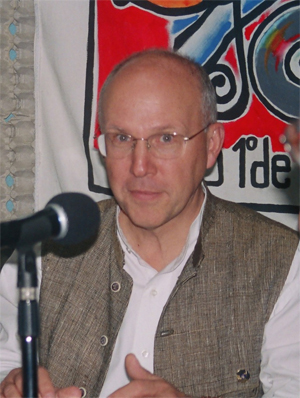
Richard Reoch broadcasting in Santiago, Chile, at a community radio station in La Victoria, one of the shantytowns famous for their resistance to General Pinochet.
Richard Reoch has devoted his life to defending human rights, working for peace and protecting the environment.
Born in Toronto, Canada, he was raised in a Buddhist family, eventually serving as the President of Shambhala, one of the largest Buddhist organizations in the world, from 2002 to 2015. He joined the International Secretariat of Amnesty International (1971-1993), becoming its global media chief (1980 – 1993). He then served as a trustee of The Rainforest Foundation (1996 – 2015).
He continued his work for human rights and peace, engaging with organizations in Northern Ireland (1994 – 2009) and Sri Lanka (1995 – present). He is now a global advocate of cross-cultural communication and inter-faith understanding, speaking out on the rising tide of hatred and violence.
In parallel with his life in public advocacy, he studied the Chinese classical arts of Tai Chi Chuan and Zhan Zhuang Chi Kung for 30 years with Master Lam Kam Chuen, trained as a practitioner of the Shiatsu system of energetic healing, and is the author of Dying Well: A Holistic Guide for the Dying and their Carers.
Early Life
Richard Reoch was born in Toronto, Canada, on 23 August 1948. He is the only son of Flora Jean Gay and Robert Campbell Reoch. His mother, a Canadian by birth, was the conference secretary of the 1932 founding convention of the Co-operative Commonwealth Federation, founded in Calgary as a political coalition of progressive, socialist and labour groups calling for economic reform to help Canadians affected by the Great Depression. It became the first socialist political party with elected representatives in the Canadian Parliament. In 1935 she married Robert Reoch, a food chemist, who had emigrated to Canada from Blairgowrie, Scotland, in 1917.
At the outbreak of the Second World War, they withdrew from the Scottish Presbyterian Church in Toronto to which they belonged on pacifist grounds. This led to a 15-year search for a new spiritual community. In 1954 they joined the Toronto Buddhist Church, a chapter of the Jodo Shinshu Pure Land sect of Japanese Buddhism, part of the Buddhist Churches of America. As a result, their son Richard, then aged 6, became one of the earliest non-Oriental westerners of his generation to become a Buddhist.
His primary and secondary education took place in Toronto at Crescent School and University of Toronto Schools where he received the Nesbitt Gold Medal. He received a Bachelor of Arts in English Language and Literature from Trinity College, University of Toronto, in 1970. From 1970 to 1971, he was Program Director, Open Windows Community Program, a government-funded initiative to help inner city youth.
In 1971, he moved to London, UK, to join the International Secretariat of Amnesty International.
***
Buddhist study, practice and leadership
The presence of Buddhism in North America in the early 1950s was largely the result of Asian immigration, although there was growing interest in Zen Buddhism among the so-called “Beat Generation.” For the first six years that Reoch and his parents attended the Toronto Buddhist Church they were the only non-Japanese there. They first took part in its Sunday services in 1954 after meeting its spiritual director the Rev. Takashi Tsuji.
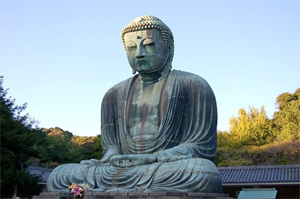
The most famous statue of Amida Buddha is in Kamakura, Japan. He is said to be the embodiment of enlightenment, compassion and wisdom, renowned for his 48 limitless vows to liberate all beings from suffering. In the Pure Land tradition, practitioners vow to “follow his example and labour earnestly for the welfare of all humanity.”
The central practice of the Jodo Shinshu sect is reciting the “nembutsu”, calling on the name of Amida Buddha, the Buddha of Compassion. Few books on Buddhism were available in those years in local bookshops; the family ordered what they could from overseas, many from the Buddhist Publication Society, Kandy, Sri Lanka. After the death of his father in 1966 and prior to leaving Toronto for London, Reoch and his mother attended Soto Zen meditation courses at the Rochester Zen Centre, USA, and York University, Canada.
During his years of work for Amnesty International in Asia, he continued his private Buddhist practice without belonging to any organization. His work brought him into contact with the Tibetan community in exile and, while in India, he secured intervention by His Holiness the Dalai Lama on behalf of Buddhist monks imprisoned in the Republic of Viet Nam (South Viet Nam).
Shambhala
After 23 years of working for Amnesty International, he entered the training offered by the Shambhala community started in the West by Tibetan meditation master Chögyam Trungpa Rinpoche. In 1994, Reoch received the Buddhist name Tashi Changchup, Auspicious Enlightenment, from the son and heir of Chögyam Trungpa: The Sakyong, Jamgön Mipham Rinpoche – revered as the rebirth of Mipham the Great, said to be a living embodiment of Manjushri, the bodhisattva of wisdom.
Among the many short films he made for the Shambhala community, this multilingual presentation, “Countless points of light”, shows the global reach of the Shambhala teachings. It includes an illumination of the Shambhala emblem, The Great Eastern Sun, created from hundreds of lighted candles.
After attending a three-month Shambhala seminary in 1996, he received transmission into the practice of Vajrayana Buddhism, and was appointed Director and Chair of the Council of the London Shambhala Meditation Centre. From 1999 to 2001, he directed the planning of the Consecration of The Great Stupa of Dharmakaya at Shambhala Mountain Center in the Colorado Rockies, USA – an international gathering of 1,500 people at 6,000 feet in the mountains.
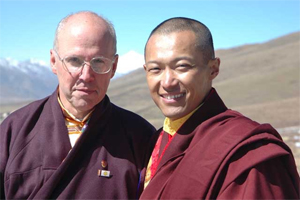
Sakyong Mipham Rinpoche with President Reoch in Tibet. The fabled Mount Magyal Pomra is in the distance directly behind them.
A year later, Reoch was appointed by Sakyong Mipham Rinpoche to the position of President of the worldwide Shambhala organization, a position he held from 2002 until 2015, travelling worldwide to many of its more than 200 centres and groups, teaching and leading retreats. He now serves as the Personal Envoy of the Sakyong of Shambhala.
During his period as President of Shambhala, he toured with Buddhist Nun Ani Pema Chödrön, co-leading events on the theme “Practicing Peace in Times of War” and taught widely on the life and legacy of the Indian Emperor Ashoka, famed for renouncing war.
Compassionate Abiding Practice
As part of the “Practicing Peace in Times of War” tour, Ani Pema Chödrön introduced participants to the practice of Compassionate Abiding. It is a profound method of working with intense emotion, based on the classical text, The Way of the Bodhisattva, by the great master Shantideva.
Reoch was later asked by Shambhala Mountain Center to offer this practice as a filmed guided meditation for its Awake in the World online program.
The film includes an explanation of the practice and its application as well as a real-time session for live practice.
In May 2015, he was among a group of some 200 Buddhist leaders, from all different schools, who were invited to the White House in Washington DC for a meeting with key staff in the Obama administration. Delegates signed the Buddhist Declaration on Climate Change and later, a statement following the massacre at the Emanuel African Methodist Episcopal Church in Charleston, South Carolina.
A Buddhist Brawl
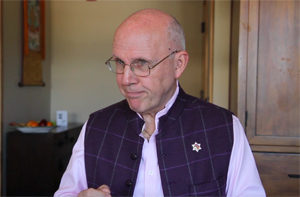
Mindful Politics – A Buddhist Guide to Making the World a Better Place was published by Shambhala Publications in 2006. The editor, Melvin McLeod, wrote: “Around the world, long-standing wars are driven by the terrible cycle of revenge, of wrongs committed in response to previous wrongs. Elsewhere, conflict and alienation are fueled by fear, insecurity, jealousy, hatred and greed. And everywhere, people are divided from their fellow human beings by the fundamental dualistic split between self and other, the split that Buddhism says is the root of all our suffering.” The publication includes the following article, “A Buddhist Brawl”, by Richard Reoch.
Not so long ago a brawl broke out in a Buddhist shrine room. A close friend of mine was involved. The retreat leader was injured and needed treatment. It all happened in a very lovely retreat centre near where I live.
They were having a weekend devoted to non-violence, and had invited a guest facilitator to lead the retreat. He wasn’t a Buddhist, but knew about group dynamics.
On the second day, the retreat leader proposed a role play. Two of the participants would be “kidnapped” by a terrorist group. The rest would have to negotiate for their freedom.
The retreat leader was to play the terrorist with whom they would negotiate. He opened a pack of cigarettes, took out a match and lit up.
“Excuse me,” said one of the participants, “there’s no smoking in the shrine room.”
The leader paid no attention. He smoked on in silence.
“Please put out the cigarette. We don’t smoke in the shrine room.”
“I don’t give a damn about your smoking rules,” said the terrorist coldly. “Do you want to talk about smoking, or do you want your friends back?”
“We won’t negotiate with you until you respect our shrine room,” said someone who was emerging as a leader for their side.
“OK,” said the terrorist, “I’ll stop.” He stood up slowly, sauntered over to the shrine, took a last puff and stubbed out his cigarette in the lap of the buddha.
Gasps filled the room. This was no longer play acting. People rushed up to see if the buddha rupa had been damaged.
“What do you think you’re doing?” someone shouted. “That’s a buddha!”
“I don’t give a damn. It’s not my buddha. This is not my shrine room. I’ve stopped smoking. Do you want to talk about your friends or shall I leave?”
People were irate. Events were overtaking them. No one wanted to talk about the hostages; they were obsessed with the assault on the buddha.
One person went up to the retreat leader and talked to him straight from the heart. “We invited you here to lead this weekend. We know this isn’t your community or your tradition. But this is our sacred space. All we ask is that you honour that.”
“Would you like to see how much I respect your space?” he replied. He walked over to the corner and pissed on the floor.
The whole room lunged forward. The first person to reach him knocked him to the ground. The rest joined in, shouting, beating and kicking him as he curled up on the floor to protect himself from the blows.
Eventually he managed to drag himself out of the shrine room, told the two “hostages” to rejoin their fellow practitioners and abandoned the weekend.
Friends, this is the way these events were told to me. In these dark and turbulent times, I often find it helpful to remember them.
**********************
Richard Reoch guest speaker of St. Johnsbury Rotary Club
by caledonianrecord.com
Jul 25, 2012 Updated Jul 21, 2016
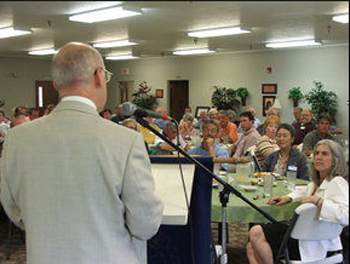
SHAMBHALA PRESIDENT ADDRESSES ROTARIANS -- Richard Reoch, president of Shambhala, was guest speaker during St. Johnsbury Rotary Club's weekly meeting July 16. Born in Toronto in 1948, he became a Buddhist at age six, when his family joined the Toronto Buddhist Church, a Japanese Pure Land community devoted to the Buddha of compassion. At age 23, he moved to London, England to work at the headquarters of Amnesty International, the human rights organization. After starting at Amnesty as a volunteer in 1971, Richard worked as a research assistant on Amnesty's first report on the global epidemic of torture. He was posted to South and East Asia as the organization's first field secretary. Appointed in 1978 to head Amnesty's global media operations, Richard became part of the organization's senior management. For 13 years he played a leading role in developing the multicultural policies needed by this diverse, democratic movement working in 60 languages with supporters in 150 countries. He spoke to Rotarians about his various experiences in Southeast Asia and Africa with Amnesty.

